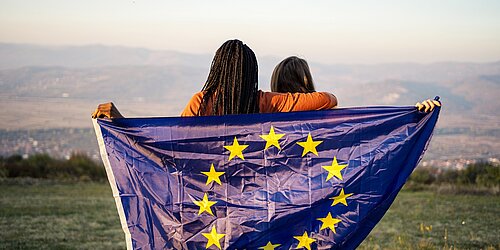Copyright: Arnika/CEPO
Project background
National borders are meaningless to flowing bodies of water like the Elbe. The current, sediment transportation and deposition, riverbank flora, pollution or species diversity all tell the tale of what has been experienced upstream. Accordingly, the preservation and use of watercourses is a shared challenge for national and supranational stakeholders. EU legislation such as the Water Framework Directive (WFD) is meant to enable coordination as well as provide joint objectives within the EU. The WFD is therefore a key piece of policymaking as regards maintaining river health and pursuing renaturation. However, the low profile of this directive stands in stark contrast to its importance.
Within the EU, only a few sections of the Elbe can be referred to as ‘natural’ waterways. Yet as a habitat, the European Elbe is particularly rich in species and, accordingly, is subject to wide-ranging safeguards. EU environmental policies consider the Elbe as needing special protection and ecological improvement. The WFD specifies a ‘good’ to ‘very good’ ecological status for the Elbe and has tasked the governments of the countries through which it flows to achieve these standards.
As a result of the interplay of more intensive land use, anthropogenic climate change and changing conditions for agriculture and forestry, an additional worsening of the ecological status of the Elbe is likely. The total pollution load resulting from the discharge of various substances, plus rising temperatures and falling water levels could produce an ecological catastrophe similar to that faced by the Oder in 2022. The Elbe is also a supranational waterway: the further expansions to its navigability planned by Germany and Czechia could result in additional negative impacts.
However, Germany and Czechia take different approaches to handling the Elbe as a waterway. It needs to be clarified how competing uses can be reconciled with the achievement of a good ecological status for the Elbe. To this end, networking among stakeholder groups, deepening mutual understanding, disseminating knowledge on the WFD as well as raising and sharpening awareness of the ecological status of the Elbe are key.
Project goals and measures
To promote joint, cross-border measures as well as shared learning, the project focuses on the area between Dresden (Germany) and Děčín (Ústí nad Labem, Czechia). Various stakeholder groups (policy, tourism, environmental protection, cyclists, anglers, interested residents, etc.) will be linked together. An appreciation of the Elbe, mutual understanding, sustainable perspectives to create a good ecological status for the Elbe and integrative shared uses will be fostered through:
- Environmental education
The project will raise awareness among students at secondary schools and universities of the challenges – further exacerbated by anthropogenic climate change – of providing adequate volumes of high-quality fresh water. First-hand experience of the Elbe or the tributaries flowing into it will create a broad understanding of the opportunities and challenges of a sustainable water management.
- International conference
With an interactive and integrative approach, the WFD will become more accessible to a wider public, and open questions will be clarified. This will raise awareness of the complex challenges of an EU-wide coordination of water protection, quality improvement and conservation. Policy options and implementation barriers will be identified and potential solutions jointly developed. To this end, all Elbe-focused interest groups will be encouraged to actively participate in the conference.
- International excursion
Hands-on, personal experience will give participants a deeper understanding of the Elbe as a shared ecosystem and the threats that it faces. This will be the starting-point for more intensive individual engagement and an increased readiness to accept the implementation of necessary measures. Opportunities for informal dialogue and personal networking will be presented.
Interaction between participants will be facilitated and strengthened through social and print media. At the same time, ‘The Elbe lives!’ project content will also reach non-active participants in the project.
All participants should act as multipliers disseminating the benefits of a more natural Elbe region, continuing to network and stay in contact, organising small- and large-scale initiatives for a good ecological status for the Elbe and potentially getting involved in environmental organisations themselves. The aim is to generally increase acceptance for corresponding measures and legislation like the WFD.
